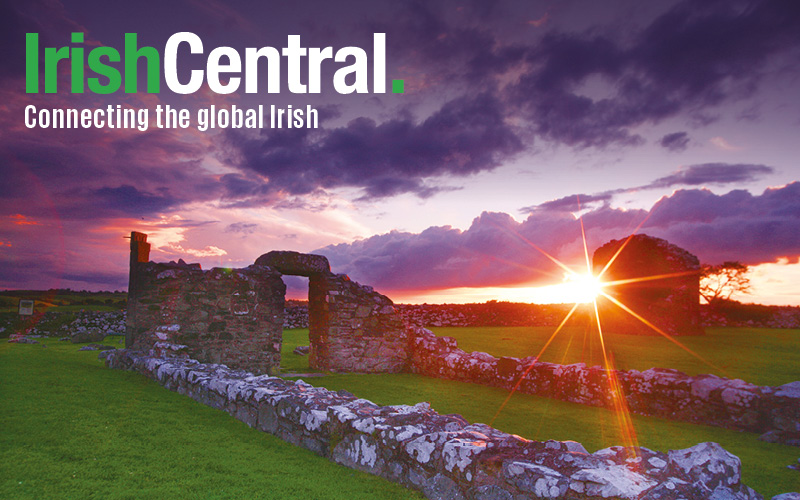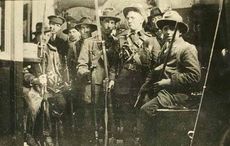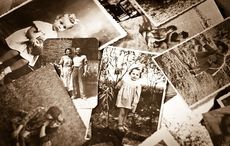Being Irish not just an Irish thing, of the 70 million people worldwide who claim Irish ancestry, only about 5 million are actually Irish citizens. This year, anyone with the slightest connection to Ireland has been invited home for The Gathering 2013. Some have viewed the initiative cynically, as a way for a bankrupt state to haul in a few extra tourist dollars. However, in the hands of ordinary people, the Gathering may yet prove to be a profound thing.
I write this in an old cottage on Sherkin Island off the Cork coast. By this very fireside, heart-rending decisions were made: Who must go, and who could stay. At the dock on the far side of the island, hungry men built small ships, which were used as lifeboats for desperate people to flee for America during the apocalypse of the famine. The population of this island - and the entire country - more than halved during those years. We, the Irish of today, are the sons and daughters of those who stayed. Yet, the children of those who left still remain our kin, whether their passports are now American, Canadian or Australian.
Last year, our family experienced a powerful foretaste of what the Gathering could mean, thanks to the genealogical ingenuity of my mother. She had somehow traced our family line all the way back to one John Lane who lived in Slumber Hill in north Cork in the mid-1700s. She then managed to contact our long-lost American cousins, who duly flew to Cork to meet our sprawling extended family. Most astonishingly, the records showed that our family had lived at the same cottage from the 1700s, right up until my grandmother was born under its warm thatched roof one May morning in 1914.
And so, one summers day last year, the American and Irish descendants of John Lane together walked up the long rutted boreen toward the old family farmhouse which had birthed us all, almost three centuries before. Although recently abandoned, the house stood square and kind, built by the strong hands of long dead kin. Amongst the trees and stables, it was easy to imagine children playing here long ago, chasing chickens about the yard, or laughing as the pig got loose. But there was a palpable sadness too. And no wonder: This area was devastated by the famine - a fact grimly attested to by the mass grave just down the road. In 1846, the eldest daughter of our shared family gathered four of her younger brothers and sisters and walked sorrowfully toward the waiting ship in Cork harbour. They sailed to America, never to return.
165 years after this sorrowful parting, these sundered brothers and sisters were somehow reunited - through us. We had never met these Americans before, but we were not strangers. Not as we stood silently at the bend in the road where the house disappeared from view as the younger ones left for America: one last lingering glance over the shoulder. Such heartbreak is found in all Irish families. I'll never forget seeing an Australian friend breaking down in tears on her first visit to Cobh’s quaysides, from where her great-great grandmother - aged just 15 - boarded a ship alone for the dangerous voyage to Australia. Her grandmother, still alive, remembered her own grandmother’s tales of that long voyage and her childhood in Tipperary. Even today, we are but one person removed from the famine.
Ireland is the touchstone, but we stay-at-homes should not be so arrogant as to think that we alone define Irishness. We are merely one strand of the tribe whose great body now resides in North America. Too often, the modern Irish response to our Irish-American visitors has been one of cool indifference. Yet we remain one interconnected tribe, though sundered by a hard history. Perhaps those who left, and we who stayed, still bear within us some deep and unacknowledged scars from the parting. Now, even as Ireland becomes more multicultural, the global Irish have become more diverse - and more interesting - than ever before. Even President “O’Bama” has discovered and embraced his Irish roots.
This year, many will come from afar seeking fragments their past. We should greet them not as strangers, but as kin. For it was the great-grandson of a Wexford barrel-maker, one John F Kennedy, who said:
“Whether we live in Cork or Boston or Chicago or Sydney, we are all members of a great family which is linked together by that strongest of chains - a common past.” The Gathering, if we embrace it, could mean that the global Irish have a common future too.




Comments